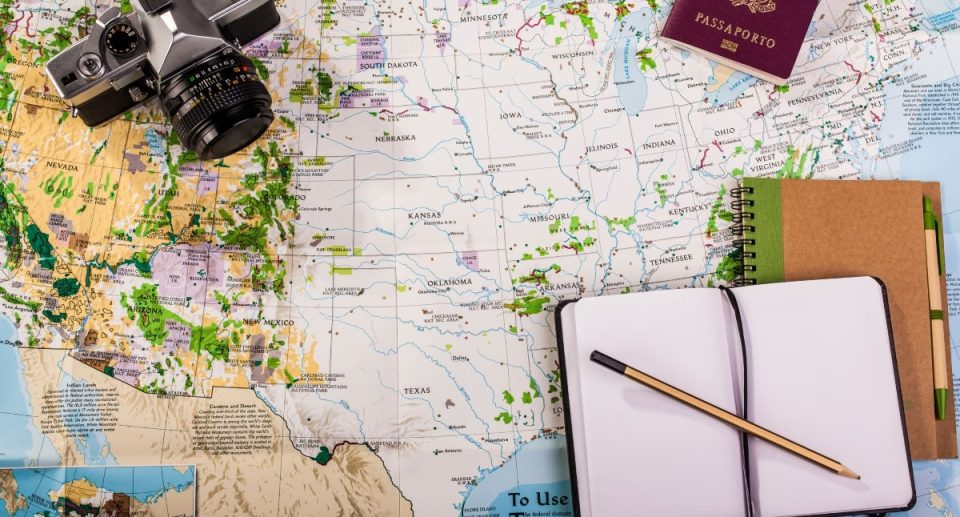A Guide to Travel for Seniors: Destination, Tips, and Precautions

Travel is a joy that knows no age limits, and for seniors, it offers a chance to explore new horizons, embrace diverse cultures, and enjoy well-deserved relaxation. With advancements in accessibility and a growing array of travel options designed for comfort and convenience, seniors are increasingly discovering the world’s wonders with ease and confidence.
However, traveling as a senior does come with unique considerations. From choosing destinations that cater to specific needs to ensuring health and safety on the go, it’s essential to have a travel plan that enhances the experience rather than complicates it. This guide aims to provide practical advice and insights tailored to the senior traveler, helping you make informed decisions and enjoy a memorable journey.
Choosing the Right Destination
Selecting the ideal travel destination is key to ensuring a comfortable and enjoyable experience. For seniors, considerations such as accessibility, climate, and available amenities are vital in making the best choice. Here’s a detailed guide to help you find a destination that suits your needs:
Factors to Consider
- Accessibility and Transportation: Look for destinations with well-developed transportation options that cater to seniors. This includes places with:
- Accessible Public Transit: Reliable buses, trains, and subways that are easy to navigate.
- Senior-Friendly Taxis and Ride Services: Services with accommodations for mobility aids and assistance with luggage.
- Well-Maintained Infrastructure: Smooth sidewalks, ramps, and pedestrian crossings to ensure safe and easy movement.
- Climate and Weather Conditions: Choose destinations with a climate that suits your preferences and health considerations. For a comprehensive guide on managing health while traveling, see the CDC Travel Health.
- Moderate Temperatures: Opt for areas with mild weather that avoid extreme heat or cold, which can impact comfort and health.
- Seasonal Considerations: Research the best time to visit to avoid peak tourist seasons and inclement weather.
- Availability of Senior-Friendly Activities: Ensure the destination offers activities and attractions that align with your interests and physical capabilities.
- Guided Tours: Look for tours that cater to seniors, offering a leisurely pace and accessibility.
- Gentle Outdoor Activities: Consider options like easy hikes, scenic walks, or boat rides that provide enjoyment without strenuous exertion.
- Cultural and Historical Sites: Choose locations with accessible museums, galleries, and historic landmarks.
- Health Care Facilities and Emergency Services: Prioritize destinations with:
- Reputable Medical Facilities: Access to hospitals and clinics with quality care.
- Emergency Services: Reliable emergency services and pharmacies for peace of mind.
Top Destinations for Seniors
- Relaxing Beach Resorts: Coastal destinations like Florida’s Gulf Coast or the Mediterranean offer gentle breezes, accessible beaches, and easy-paced activities. Look for resorts with features like beachside cabanas, accessible pools, and on-site medical services.
- Scenic Countryside Retreats: Areas such as Tuscany in Italy or Napa Valley in California provide serene environments, rolling hills, and picturesque vineyards. These locations offer comfortable accommodations and leisurely activities such as wine tasting or scenic train rides.
- Historic and Cultural Cities: Explore cities with rich cultural heritage and accessible attractions. Paris provides iconic landmarks with guided tours designed for ease, while Washington D.C. offers a range of museums and monuments with wheelchair access and senior discounts. For more top travel destinations, visit AARP Travel.
- Wellness and Spa Retreats: Destinations like Sedona or Bali focus on relaxation and health. Choose resorts offering wellness programs, spa treatments, and gentle exercise classes, with facilities designed for comfort and accessibility.
Essential Travel Tips for Seniors
Ensuring a smooth and enjoyable travel experience involves careful planning and preparation. Here are detailed tips to help seniors travel comfortably and confidently:
Health and Safety Preparations
- Consult Your Healthcare Provider: Before setting off, schedule a visit with your healthcare provider to discuss your travel plans. Address any potential health concerns, update vaccinations if necessary, and obtain advice on managing health conditions while traveling.
- Organize Medications: Pack enough medications for the entire trip, plus a little extra in case of delays. Keep medications in their original packaging, and carry a copy of your prescriptions. Consider using a pill organizer with compartments for each day to simplify taking your meds.
- Travel Insurance: Invest in comprehensive travel insurance that covers medical emergencies, trip cancellations, and lost or delayed luggage. Make sure the policy includes coverage for pre-existing conditions if applicable.
Packing Smart
- Lightweight Clothing: Opt for comfortable, lightweight clothing that can be easily layered to adapt to changing weather. Choose breathable fabrics and avoid bulky items to keep your luggage manageable. Include a few versatile pieces that can be dressed up or down.
- Medical Supplies: Bring all necessary medical supplies, including hearing aids, mobility aids (such as canes or walkers), and any special equipment you may need. Pack these items in an easily accessible part of your luggage.
- Travel Aids: Include helpful travel accessories such as a travel pillow for added neck support, a compact umbrella for unexpected weather, and a reusable water bottle to stay hydrated. Consider packing a small first-aid kit with basics like band-aids, antiseptic, and pain relievers.
Navigating Transportation
- Choose Senior-Friendly Options: Opt for flights with minimal layovers and direct routes to reduce travel time and stress. Many airlines offer special services for seniors, such as pre-boarding, assistance with luggage, and help navigating the airport. Check with your airline to arrange these services in advance.
- Local Transportation: Research and select transportation options at your destination that are senior-friendly. Look for accessible taxis with ramps or lifts and rental cars equipped with hand controls if needed. Familiarize yourself with local public transit services that offer accessibility features, such as low-floor buses and elevators at stations.
Accommodation Considerations
- Accessible Lodging: Choose accommodations that provide accessible features such as elevators, grab bars in the bathroom, and wheelchair ramps. Confirm these features with the hotel before booking to ensure they meet your needs.
- Comfort and Convenience: Look for hotels that offer amenities designed for comfort, such as adjustable bedding, easy-to-reach outlets, and spacious rooms. Consider accommodations with on-site dining options and a convenient location close to attractions and services.
- Special Requests: When booking, make any special requests known, such as a room on a lower floor or a room with an accessible shower. Verify these requests with the hotel to avoid surprises upon arrival.
Health and Wellness on the Road
Maintaining good health and wellness while traveling is crucial for a pleasant and successful trip. Here are detailed tips to help seniors stay healthy, active, and comfortable during their travels:
Staying Active and Energized
- Exercise Regularly: Incorporate light physical activities into your daily routine. Engage in gentle exercises such as stretching, walking, or swimming. Many hotels offer fitness centers or have nearby parks and walking trails. Consider joining local walking tours or fitness classes designed for seniors.
- Hydrate and Eat Well: Staying hydrated is essential, especially in warmer climates or after long flights. Aim to drink water regularly throughout the day. Choose meals that are nutritious and balanced, including a variety of fruits, vegetables, whole grains, and lean proteins. If you have dietary restrictions, research local restaurants and grocery stores that accommodate your needs.
- Rest Adequately: Ensure you get sufficient sleep each night to help your body recover and stay energized. If you feel fatigued during the day, take short breaks or naps to recharge. Create a relaxing bedtime routine to improve sleep quality, such as reading or listening to calming music.
Managing Chronic Conditions
- Monitor Health: Keep track of any chronic conditions and follow your prescribed treatment plan. Maintain a health journal if necessary, noting any changes or symptoms. Carry all required medications in their original packaging and ensure you have enough for the entire trip, plus a bit extra in case of delays.
- Emergency Health Information: Prepare an emergency health information sheet that includes details about your medical conditions, medications, and allergies. Carry it with you and consider sharing it with a travel companion. This information can be crucial if you need medical attention.
- Know Local Medical Resources: Research medical facilities at your destination before you travel. Locate nearby hospitals, clinics, and pharmacies. Know how to reach local emergency services and have contact information for your travel insurance provider in case you need to file a claim or seek medical assistance.
- Stay Informed About Health Advisories: Check for any health advisories related to your destination, such as disease outbreaks or vaccination requirements. Stay updated on any travel advisories that might affect your health and safety.
Safety Precautions
Ensuring safety during travel is essential for a worry-free experience. Follow these practical tips to stay secure and avoid common pitfalls:
Avoiding Common Travel Scams
- Be Skeptical of Unsolicited Offers: Be cautious of unsolicited offers or deals that seem too good to be true, especially from unfamiliar sources. Avoid sharing personal information or making payments without verifying the legitimacy of the offer.
- Secure Your Belongings: Use a money belt or neck pouch to keep valuables such as passports, credit cards, and cash secure. Always be aware of your surroundings, particularly in crowded areas, to avoid pickpocketing.
- Verify Services: Before using local services such as taxis or tour guides, verify their credentials and read reviews. Use reputable companies and consider booking services through trusted travel agencies or hotel recommendations.
Staying Secure
- Keep Personal Items Safe: Keep important documents and valuables in a secure location, such as a hotel safe or a lockable suitcase. Avoid displaying expensive items or large amounts of cash in public.
- Stay Aware of Your Surroundings: Remain vigilant and aware of your surroundings, especially in unfamiliar areas. Be cautious when interacting with strangers and avoid discussing personal details or travel plans with people you don’t know.
- Emergency Contacts: Have a list of emergency contacts, including local emergency services, your embassy, and your travel insurance provider. Keep this information in an easily accessible place.
Cultural Sensitivity and Etiquette
Respecting local customs and etiquette enhances your travel experience and fosters positive interactions. Here are key practices to follow:
Understanding Local Customs
- Research Local Norms: Before traveling, learn about the cultural norms and social practices of your destination. Understanding local customs, dress codes, and behavior expectations helps avoid misunderstandings and shows respect.
- Learn Basic Phrases: Familiarize yourself with a few basic phrases in the local language. Simple greetings or polite expressions can go a long way in building rapport and showing appreciation for the local culture.
Respecting Cultural Differences
- Observe and Adapt: Pay attention to how locals behave and follow their lead. Adapting to local practices, such as removing shoes before entering a home or covering up in religious sites, demonstrates respect for cultural traditions.
- Be Mindful of Tipping Practices: Tipping customs vary by country. Research local tipping practices to ensure you are following the appropriate etiquette and avoid unintentionally offending anyone.
Conclusion
Travel offers seniors a chance to explore new horizons and enrich their lives. By choosing the right destination, preparing thoughtfully, and following essential health and safety tips, you can ensure a rewarding and enjoyable experience. Select destinations that cater to your needs, pack wisely and stay active and well-hydrated. Keep safety in mind by avoiding scams, securing your belongings, and respecting local customs. With these strategies, you can travel with confidence, making the most of every adventure and creating lasting memories. Embrace the journey, stay informed, and enjoy the diverse world waiting for you.





